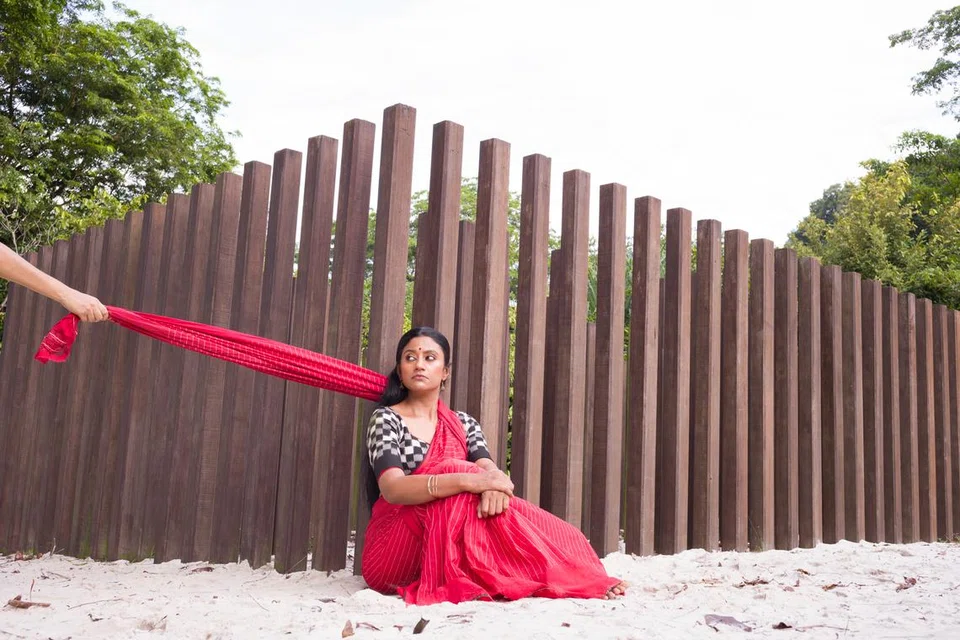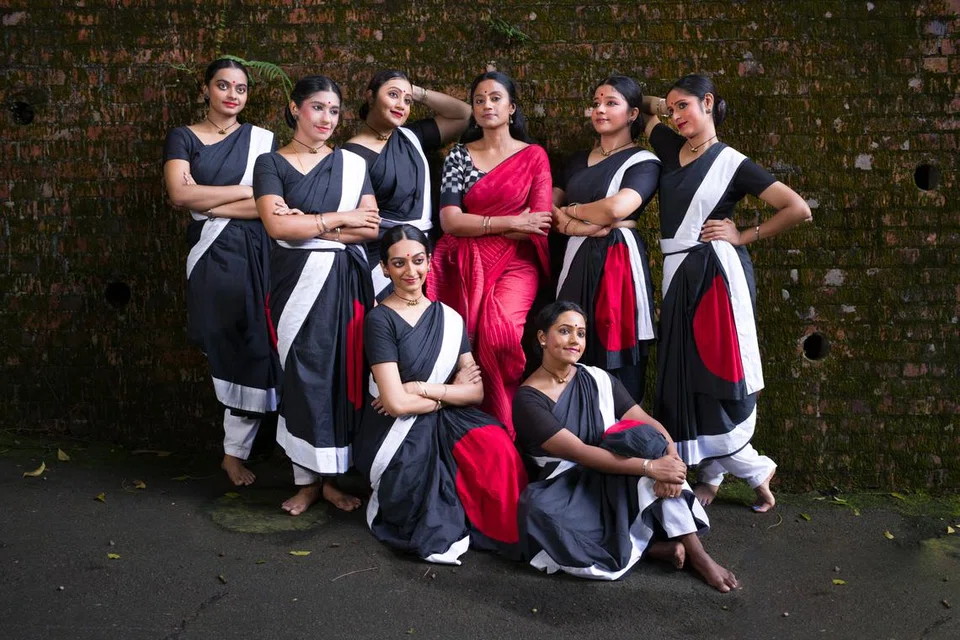At a panel discussion hosted by Kalpavriksha Fine Arts and AWARE, Singapore’s leading advocacy organisation fighting violence against women, at the National Library on July 19, the sobering realities of gender-based violence in the city-state took centre stage.
The statistics shared on domestic and sexual abuse revealed a troubling disconnect between societal ideals and lived experiences.
In this vein of discourse, Eeram, a Bharatanatyam dance-theatre production, was mentioned. The production delves into the complexities of womanhood shaped and constrained by patriarchy.
Ms Meera Balasubramaniam, one of the five panellists, spoke about the ideation process behind Eeram. The production was born from a single provocative question: “Is feminism still relevant in modern society?”
It’s the kind of question that can trigger eye rolls in certain circles, Ms Meera said. “Hasn’t that been done before?” “What’s new to say?” she quipped.

In conversation with the eight artists behind Eeram, a dance production first conceived in Chennai and now reimagined in Singapore, the question wasn’t rhetorical but a provocation to reckon with the lived experiences of women today. Additionally, and perhaps most radically, to use Bharatanatyam as the choice of language for a conversation that is often dismissed as “untranslatable” or “tired”.
Eeram, she said, does not offer a narrative in the traditional sense, nor does it present a single heroine or a clear arc. Instead, it is a collection of vignettes and metaphors that explore identity, patriarchal conditioning, and self-empowerment.
Getting involved in the process of ideation, the dancers said, called for unlearning, opening up and confronting their own biases. Especially in working with a male choreographer, Mr Shyamjith Kiran, questions arose regarding his proficiency in translating a woman’s experience into dance.
Sharing his approach, Mr Shyamjith, 41, said, “The intention was to have collective thoughts about the concept & make them understand through different perceptions. Irrespective of socio-political conditions, all dancers have different life experiences but I felt it’s important to make them talk & listen to them so that they visualise scenarios in their respective minds.”
One of Eeram’s dancers, Ms Preethi Devarajan, 27, said: “Any male would not have the lived experience, but he (Mr Shyamjith) was open to listening to what we had to share. Of course, there were parts where we did not see eye to eye at first, but his willingness to listen and our unique opportunity to sit with our him and discuss freely, without the worry of him taking offence, was refreshing.”
Regarding male allyship in the performing arts, Ms Meera said there are men who respect, uplift, and collaborate, and there are others, educated and respected, who still see a woman’s ambition or confidence as a threat.
“The best thing a man can do is listen,” dancer Ms Vidya Unni, 34, said. “One bad experience,” she added, “can undo a hundred good ones.”
Reflecting on the dangers girls and women are vulnerable to, dancer Ms Renisha Mukkam, 30, said, “Teachers need to understand that we put them on a pedestal, but that power cannot be abused. If I have a daughter, I will make sure she knows her worth and what her boundaries are. Because dance is something so physical, it’s so easy to cross those boundaries.”
A fellow dancer, Ms Shruthi Ramesh, 35, chimed in saying, “We need to teach our sons the same. We should talk about everything, nothing should be taboo.” Moreover, in most corporate settings, there are frameworks to protect women, but the performing arts do not necessarily offer that, Ms Preethi noted. “Even if we are given a choice to report, it doesn’t feel like we can exercise it,” she added.
“This is the first production I’ve been in where there are more married women and mothers than unmarried women, which in itself is a reflection of the everyday woman’s lived experience, balancing passion, work, and family life,” dancer Maanasa Sri Ganesh, 27, said.
Eeram is part of a larger programme called Samskriti, organised by Kalpavriksha Fine Arts that celebrates the plurality of Indian arts through performance, dialogue, and collaboration. The planning for the Samskriti began in early 2024, starting with identifying the festival’s theme to reflect the spirit of cultural exchange.
The impetus was clear – to create a common platform where Singaporean and international artists, both emerging and seasoned, could share the stage.
This years program includes two shows of Eeram, held on Aug 15 and 16, Star Trek - a storytelling experience about legendary MS Subbulakshmi and Rukmanidevi Arundale presented by Gowri Ramnarayan held on Aug 16, and finally, Madurai Veeran Koothu, a kuttiyattam performance by Kapila Venu on Aug 17.

